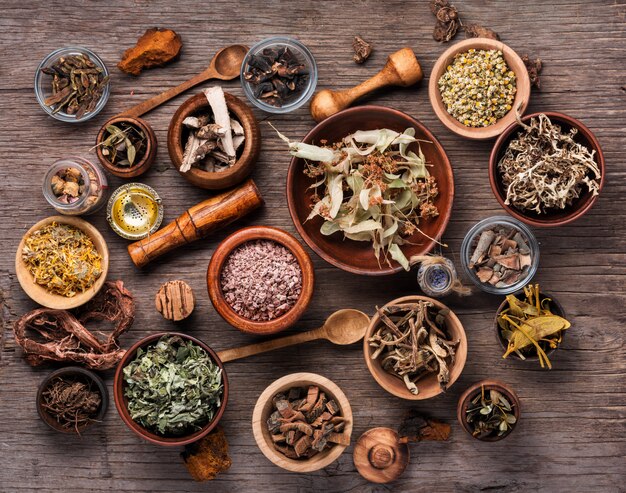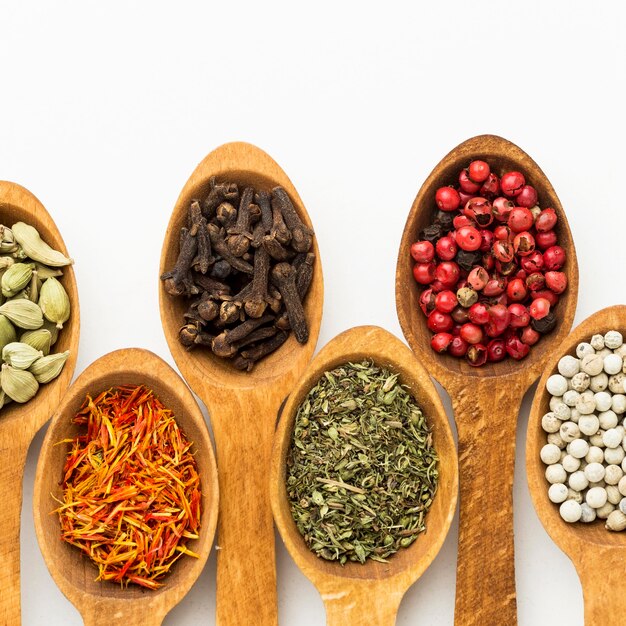आयुर्वेदिक डॉक्टर से प्रश्न पूछें और निःशुल्क या भुगतान मोड में अपनी चिंता की समस्या पर ऑनलाइन परामर्श प्राप्त करें। 2,000 से अधिक अनुभवी डॉक्टर हमारी साइट पर काम करते हैं और आपके प्रश्नों का इंतजार करते हैं और उपयोगकर्ताओं को उनकी स्वास्थ्य समस्याओं को हल करने में प्रतिदिन मदद करते हैं।
Nishakathakadi Kashayam Uses: Evidence-Based Guide and Benefits

Nishakathakadi Kashayam is an Ayurvedic herbal formulation traditionally revered for its potential therapeutic effects on various health concerns. From supporting blood sugar regulation to aiding digestive processes, this time-tested remedy combines the wisdom of ancient Ayurvedic texts with ongoing scientific exploration. In this article, we delve into current research findings, clinical evidence, and expert guidelines, aiming to provide an in-depth, user-friendly resource. Whether you’re a healthcare professional looking to broaden your understanding or an individual seeking natural health solutions, this guide offers balanced, trustworthy insights into Nishakathakadi Kashayam uses.
Table of Contents
-
What Is Nishakathakadi Kashayam?
-
Ayurvedic Foundations and Key Ingredients
-
Traditional Uses and Modern Perspectives
-
Potential Benefits: Scientific Evidence
-
Recommended Dosages and Administration
-
Safety, Side Effects, and Precautions
-
Frequently Asked Questions (FAQ)
-
Conclusion and Call to Action
स्वयं दवा न लें और प्रतीक्षा न करें। अभी डॉक्टर से चैट शुरू करें
1. What Is Nishakathakadi Kashayam?
Nishakathakadi Kashayam is a classical Ayurvedic decoction consisting of carefully selected herbs that work synergistically. In Ayurveda, “Kashayam” generally refers to a concentrated aqueous extract (decoction) made by boiling various herbs in water. The concept has been described in classical Ayurvedic texts such as the Charaka Samhita and the Ashtanga Hridaya, which emphasize the importance of balancing the three doshas (Vata, Pitta, and Kapha) to maintain overall health and harmony.
Why Is It Called “Nishakathakadi”?
-
Nisha (Turmeric or Haridra): Renowned in Ayurveda for its antioxidant and anti-inflammatory properties.
-
Kathaka (Katuka): A bitter herb often used to support liver function and digestion.
The suffix “-adi” implies “and others,” indicating that there are additional herbs contributing to this formulation’s therapeutic actions.
2. Ayurvedic Foundations and Key Ingredients
Ayurvedic Philosophy
According to Ayurvedic philosophy, health is the outcome of balanced doshas, adequate digestive fire (Agni), proper excretion, and well-managed mental faculties. Herbal formulations like Nishakathakadi Kashayam are used to address imbalances, primarily focusing on metabolic processes.
Core Ingredients
While specific recipes can vary slightly based on regional or practitioner preferences, common ingredients include:
-
Turmeric (Curcuma longa) [Nisha or Haridra]
-
Celebrated for its antioxidant properties.
-
Contains bioactive compounds called curcuminoids.
-
-
Katuki (Picrorhiza kurroa) [Kathaka or Katuka]
-
Known for hepatoprotective and anti-inflammatory potential.
-
Often used to support liver function and healthy digestion.
-
-
Other Supporting Herbs
-
May include Amla (Emblica officinalis) for its vitamin C content.
-
Giloy (Tinospora cordifolia) as an immune-modulatory agent.
-
Neem (Azadirachta indica) to combat microbial infections and improve skin health.
-
Each herb is chosen for its complementary effect on digestion, metabolism, and detoxification. When combined in a kashayam (decoction), the extracted phytonutrients may become more bioavailable, thereby enhancing overall efficacy.
3. Traditional Uses and Modern Perspectives
Traditional Ayurveda
In Ayurvedic practice, Nishakathakadi Kashayam has been used for centuries to manage:
-
Imbalanced Blood Glucose Levels: Practitioners believe it helps regulate “Madhumeha” (Ayurvedic term corresponding to diabetes).
-
Digestive Distress: The bitter herbs stimulate the secretion of digestive enzymes, thereby supporting gastrointestinal health.
-
Liver Support: Several traditional texts mention the formulation’s cleansing and rejuvenating effect on the liver.
-
Skin Conditions: Its anti-inflammatory herbs may help alleviate mild skin irritations.
Modern Medical Interest
Modern healthcare professionals increasingly examine Ayurvedic formulations to validate or challenge these age-old claims. Current research often focuses on the roles of turmeric and katuki in inflammation modulation, glycemic control, and liver protection.
-
A 2022 review published in the Journal of Traditional and Complementary Medicine identified turmeric’s curcuminoids as potentially beneficial for supporting healthy metabolic processes.
-
Clinical data also suggest katuki may offer hepatoprotective actions, especially when combined with other herbs rich in antioxidants.
While much of the evidence is still emerging, these preliminary findings underscore the potential physiological impacts of Nishakathakadi Kashayam’s core ingredients.
4. Potential Benefits: Scientific Evidence
Below is a more detailed look at Nishakathakadi Kashayam uses and the clinical evidence—or ongoing research—behind each claim:
4.1 Blood Sugar Regulation
-
Antioxidant Effects: Curcumin from turmeric has been studied for its role in improving insulin sensitivity and regulating glucose metabolism.
-
Liver Health: A healthier liver is crucial for metabolizing carbohydrates and sugars efficiently.
A randomized controlled trial (RCT) published in Phytotherapy Research (2020) indicated that patients supplementing with a turmeric-based formula showed modest improvements in fasting blood sugar compared to a placebo group. While this study did not focus exclusively on Nishakathakadi Kashayam, the presence of turmeric suggests a parallel benefit.
4.2 Anti-Inflammatory Properties
-
Curcuminoids: Widely recognized for inhibiting inflammatory cytokines like TNF-α and interleukin-6.
-
Bitter Herbs: The presence of bitter principles in katuki may help reduce systemic inflammation and oxidative stress.
In Ayurveda, inflammation is closely tied to the concept of Pitta imbalance; thus, addressing inflammation can translate into systemic wellness.
4.3 Liver and Digestive Support
-
Katuki (Picrorhiza kurroa): Commonly mentioned in Ayurvedic texts for assisting detoxification processes in the liver.
-
Digestive Enzymes: Bitter herbs stimulate the secretion of digestive acids and bile, potentially preventing issues like bloating or indigestion.
A 2019 laboratory study in the Journal of Ethnopharmacology demonstrated katuki’s potential to reduce chemically-induced liver damage in animal models. While human trials remain limited, preliminary data show promise.
4.4 Skin Health
-
Turmeric: Known for its antimicrobial and anti-inflammatory effects, which may help alleviate mild skin irritations.
-
Neem: If included in some versions of this formulation, it has been used traditionally for combating infections and promoting skin clarity.
Though large-scale clinical trials focusing specifically on Nishakathakadi Kashayam for skin disorders are scarce, anecdotal evidence and smaller studies on individual herbs support these claims.
5. Recommended Dosages and Administration
Traditional Dosage Guidelines
In Ayurveda, dosing can vary based on factors like age, body constitution (Prakriti), and the severity of an ailment. A general guideline for Nishakathakadi Kashayam is:
-
Adults: 15–30 ml of the kashayam twice daily, typically before meals.
-
Children (7–12 years): 5–10 ml, taken under professional supervision.
Always consult an Ayurvedic practitioner or a qualified healthcare provider to individualize dosing and assess potential interactions with conventional medications.
Methods of Consumption
-
Ready-Made Liquid: Many Ayurvedic pharmacies offer bottled kashayam, which is consumed directly or diluted with water.
-
Decoction at Home: Some prefer to prepare fresh kashayam by boiling the raw herbs in water until a reduced, concentrated liquid remains.
-
Tablet or Capsule Form: For convenience, standardized extracts are sometimes available in pill form. This may, however, differ in potency from the traditional decoction.
6. Safety, Side Effects, and Precautions
Potential Side Effects
-
Gastrointestinal Discomfort: High concentrations of bitter herbs may cause mild nausea or stomach upset, especially when taken on an empty stomach.
-
Allergic Reactions: Individuals with known sensitivities to the included herbs (e.g., turmeric) should proceed cautiously.
-
Interaction with Medications: Turmeric may potentiate blood-thinning medications, and bitter herbs could influence blood sugar levels.
Precautions
-
Pregnancy and Lactation: Consult a qualified healthcare provider for personalized advice, as the safety profile in pregnant or nursing women is not extensively studied.
-
Existing Health Conditions: Patients with liver or kidney disorders, or those already on medications for chronic conditions such as diabetes or hypertension, should consult their doctor before adding any herbal remedy.
Quality and Authenticity
Ensure the kashayam is obtained from reputable Ayurvedic pharmacies or certified practitioners. Look for products that have undergone quality checks for purity, concentration, and absence of contaminants.
7. Frequently Asked Questions (FAQ)
7.1 Can Nishakathakadi Kashayam cure diabetes?
There is no definitive cure for diabetes in either conventional medicine or Ayurveda. While Nishakathakadi Kashayam uses may include blood sugar support, it should be viewed as a complementary strategy. Always consult your physician for any changes to diabetes management.
7.2 How long does it take to see results?
Response times can vary widely, often depending on individual constitution and severity of health concerns. Some people report improvements in digestive health or energy levels within a few weeks, while metabolic conditions may require longer-term use.
7.3 Can I take Nishakathakadi Kashayam alongside my usual medications?
Potential drug-herb interactions should not be overlooked. Always discuss with a healthcare professional or an Ayurvedic practitioner to ensure safe and effective integration into your treatment plan.
7.4 Is Nishakathakadi Kashayam suitable for children?
Yes, but dosage adjustments are necessary, and professional guidance is recommended. Children’s doshas and metabolic rates differ from adults, so individualized advice is crucial.
7.5 Where can I find reliable scientific studies on these herbs?
Peer-reviewed journals such as the Journal of Ethnopharmacology, Phytotherapy Research, and databases like PubMed offer several studies on turmeric, katuki, and other Ayurvedic herbs. Although fewer studies focus explicitly on Nishakathakadi Kashayam, you can glean valuable insights by reviewing research on each ingredient.
8. Conclusion and Call to Action
Nishakathakadi Kashayam uses extend beyond folklore, touching on possible benefits for blood sugar regulation, liver health, digestive efficiency, and even skin care. Rooted in the timeless principles of Ayurveda and increasingly examined through scientific lenses, this decoction exemplifies the convergence of traditional wisdom and modern research. Whether you’re an Ayurvedic enthusiast or a clinical practitioner, understanding its multi-layered mechanisms can enrich patient care and self-care alike.
If you found this guide helpful:
-
Share this article with colleagues, friends, or anyone curious about natural health.
-
Comment below with your experiences or any questions you have regarding Nishakathakadi Kashayam.
-
Subscribe to our newsletter for more evidence-based content that bridges the gap between traditional remedies and contemporary science.
Medical Disclaimer
The information provided in this article is for educational purposes only. It does not replace professional medical advice, diagnosis, or treatment. Always consult a qualified healthcare provider before making significant changes to your health routine, especially if you are pregnant, nursing, or taking other medications.
References
-
Charaka Samhita and Ashtanga Hridaya – Classical Ayurvedic texts.
-
Journal of Ethnopharmacology (2019). Study on the hepatoprotective effects of Picrorhiza kurroa.
-
Phytotherapy Research (2020). Randomized controlled trial examining the role of turmeric in blood sugar regulation.
-
Journal of Traditional and Complementary Medicine (2022). Review on turmeric’s metabolic health benefits.
By combining centuries-old Ayurvedic knowledge with emerging scientific evidence, Nishakathakadi Kashayam continues to gain interest as a holistic option for those seeking natural approaches to health. Always remember: the synergy of proper diet, lifestyle modifications, and respectful use of herbal formulations forms the cornerstone of Ayurvedic healing.



